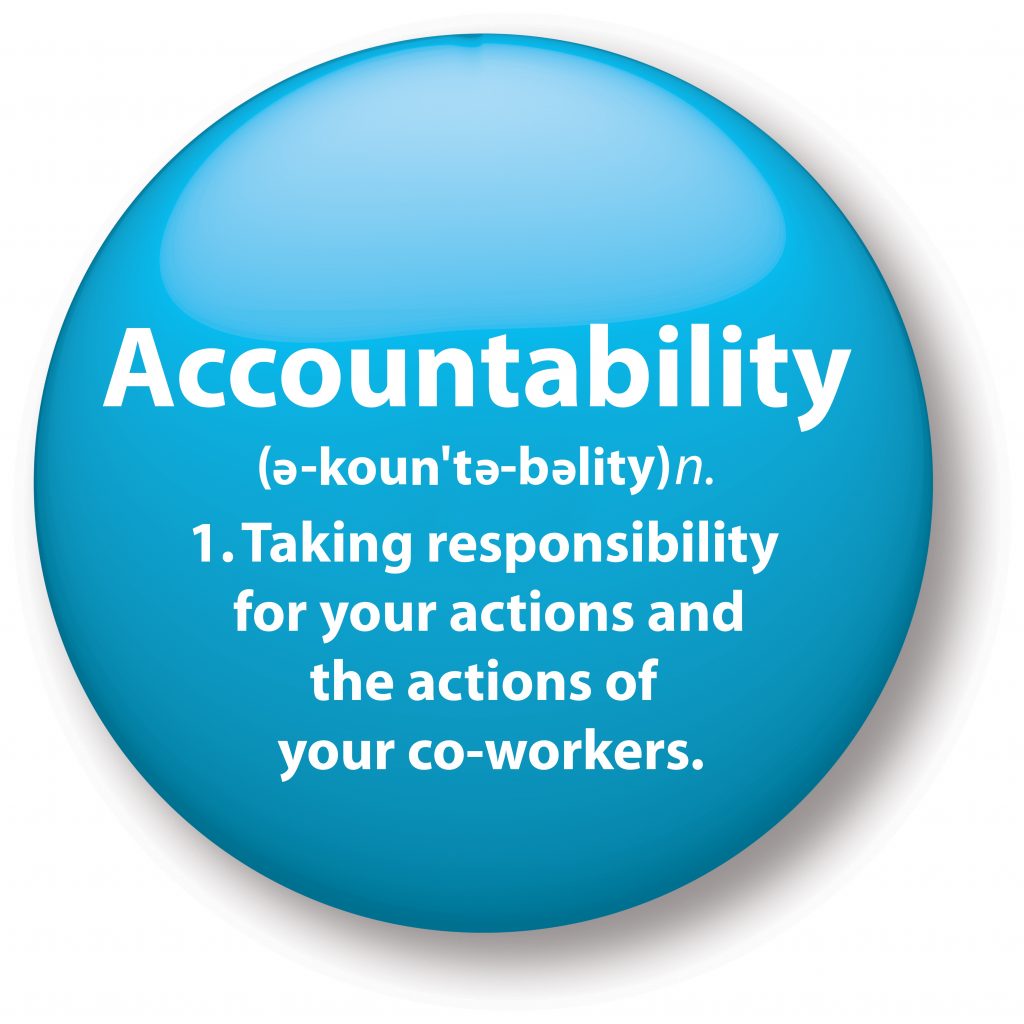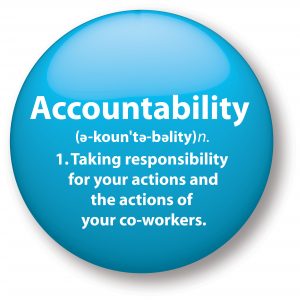There’s been some discussion swirling around my business coach community on the subject of accountability. Admittedly, it’s a broad topic that means different things to different people. However, accountability — primarily, the act of holding oneself accountable — seems to be most prevalent.
What comes to mind when you think of accountability?
As I ponder what accountability means in my universe, I define it as doing what I said I would do long after the mood in which I said I would do so has passed. That’s key — the mood thing.
It says I am reliable to do my part — even if I no longer feel like it. People can place their trust in me. It screams when I commit to doing something, I’ll follow through no matter what.
Frankly, it’s hard for me not to keep my promises (i.e., remain accountable) to others, no matter how much anxiety it creates. Staying accountable to myself, however, can be a unicorn.
The Accountability Argument with Oneself

I’m not alone in my quest to hold myself accountable. One of the primary reasons people seek out a business coach is to keep them responsible for their goals.
What is it about the promises we make to ourselves or the goals we set that make it so challenging to hold our own feet to the fire?
It’s pretty easy to talk ourselves out of following through on a promise we made to ourselves. This is because it’s such an intelligent conversation. From the witty negotiation to the strong arguments against following through, it’s a surprise we’re not all allowed to try cases in a court of law without any formal training.
It reminds me of the cartoon with the devil on one shoulder and an angel on the other while powerfully presenting the case for or against. Whoever wins the argument rules the universe.
Owning Accountability
One of my favorite definitions of accountable is by Business Dictionary
The obligation of an individual or organization to account for its activities, accept responsibility for them and disclose the results in a transparent manner. It also includes the responsibility for money or other entrusted property.
It’s this definition that sheds light on our struggle.
As business owners, we are only accountable to ourselves. Unless your business structure consists of a Board of Directors or shareholders, there is no one to “scold” you for your “bad behavior.” As a result, there are seldom consequences — beyond the crushing disappointment of missing deadlines or treasured goals.
Beyond engaging a business coach to hold our feet to the fire and honor the commitments we make to ourselves — and then — it’s sheer willpower that seems to be the glue that holds it all together. But, unfortunately, it will lose its power throughout the day — much like a muscle loses strength from continual use. I can already see the epic flaw and failure in this strategy!
Knowing how easy it is to let ourselves off the hook, it’s essential to consider a better structure. Although I’m naturally going to advocate for hiring a business coach, after all, that is my thing — it is best to create your system of accountability.
With your system in place, you rely upon yourself. And, as the saying goes, you’ll never leave you. It’s foolproof.
The Business Coach Approach to Accountability
To help you create your accountability structure, here are a few considerations:
1) Make sure you’re genuinely committed to what you say you want to achieve. Lots of us say we want something. But, in reality, it’s more of a want, a wish, or a should. There’s no real commitment behind it. Unless you can settle upon a goal you are committed to achieving; you’re only fooling and frustrating yourself.
2) Once you’ve identified a goal to which you are genuinely committed, carve out time — dedicated, uninterrupted time — during which you will do what it takes to achieve your goal. Outside of time for achievement, it’s a Santa Claus moment as you await some miracle on 35th street.
3) Surround yourself with the correct information and the right people. You’ve set your goal and carved out time. You can’t continue to poke around on FB (or whatever other social media platform you use to kill time). Your goal, and your commitment to its achievement, are much too significant. And, you know the definition of insanity — doing the same thing and expecting different results. Ugh! What are you willing to change?
4) Put a little skin in the game. That worked beautifully for me recently during a 28 day no alcohol February. In the past, where willpower failed me miserably, I put my money where my willpower wasn’t. To hold myself accountable for my goal, I committed to donating $100 to the re-election of a particular politician that I absolutely, positively did not want to be re-elected for every drink I took.
It worked!
Every time I wanted to pour myself a bit of merlot at the end of a particularly stressful day, I thought of the check I would have to write for this so-called treat. Heck no!
Bottom Line: It’s a DIY World
There’s freedom in knowing you have built the internal and external structure to honor your commitments. Think about it. Your accountability framework eliminates the need or desire to blame someone else — to scapegoat others — if, for whatever reason, they don’t hold you accountable to your commitment. (Even writing this is a bit crazy-making.)
Yes, you can use the structure of a coaching appointment for accountability, but, honestly, a coach is not your boss, spouse, mother, or judge. They don’t have the kind of power for enforcing consequences — even those to which you have agreed.
You and your system of accountability, on the other hand? It’s a winning combination.








